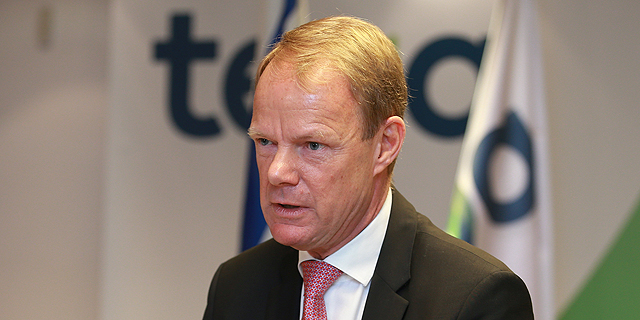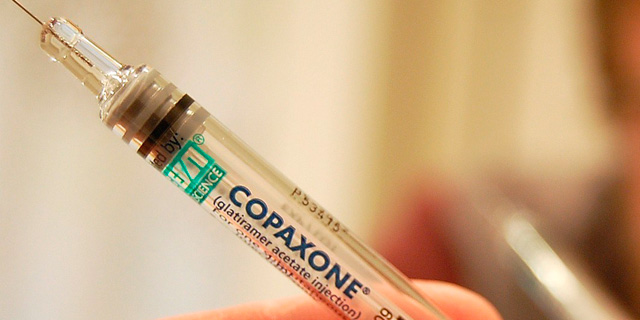
Analysis
What’s behind the timed resurgence of lawsuits against Teva?
The Israeli pharmaceutical giant was hit with three legal blows over the course of a few days
It started last Tuesday, with the filing of a civil lawsuit following an investigation into Medicare fraud and inflating the price of its multiple sclerosis drug Copaxone, which was launched in 2017. It continued later that day with the initiation of administrative proceedings in New York over its involvement in the opioid crisis. The final bullet came on Tuesday with its criminal indictment on charges that it fixed prices of generic drugs between 2013-2015.
None of the cases are new and you can’t say that the DOJ just returned to work following the Covid-19 lockdown. Therefore the timing of advancing all three cases at once raises the possibility that it is being used as a pressure mechanism to lead Teva to reach a settlement in the most important of the three — the marketing of opioids, which led to widespread addictions and the deaths of 400,000 Americans.
Teva’s response was anything but restrained
The outline of a compromise agreement with companies that were involved alongside Teva was laid out nearly a year ago, but negotiations towards their final signing have progressed slowly over recent months. The outline would see Teva pay a $250 million fine and provide addicts with rehab medication worth $23 billion. Last week, however, it was reported in the U.S. that pharmaceutical giant Johnson & Johnson and three other distributors were close to signing the agreement, which ended up with them paying significantly higher fines than expected. The companies will pay a combined $26.4 billion, of which Johnson & Johnson alone will pay $5.4 billion.
For the American prosecutors it is a significant case in terms of reputation and prestige— almost as significant as the case against the cigarette manufacturers in the late 90s. Therefore, it is assumed that Teva too will have to pay more than was tentatively agreed upon, with the fine alone possibly reaching $500 million.
People associated with Teva estimated that one of the reasons for the expedited proceedings was the need to refill the U.S. treasury’s coffers in light of the massive expenditures surrounding the Covid-19 crisis. The timing of the move was highlighted in the DOJ’s announcement regarding the indictment, with one of the prosecutors quoted as saying “during these difficult times, it is absolutely essential that our pharmaceutical companies conduct business with the well-being of the consumer in mind.”
It is apparent that Teva is beginning to get stung by the unusual heat and its response to the indictment was decidedly and uncharacteristically blunt. “Teva is deeply disappointed that the government has chosen to proceed with this prosecution. The Company has been investigating this matter for over four years and has concluded that Teva did not participate in price fixing. Based on our internal review, Teva firmly rejects the allegations and will vigorously defend the Company in court. Teva has fully cooperated throughout the course of the Department of Justice (DOJ) investigation and has attempted to reach a resolution in the best interest of the Company, its stakeholders and the patients the company serves. The DOJ has shown an unwillingness to consider alternatives that would not deeply impact Teva and the stakeholders who depend on the Company, including the patients who benefit from our medicines,” read the response.
Teva’s problem, which was reflected in the snarky response, lies in the fact that as opposed to its competitors and alleged partners in crime, it is extremely limited in its financial resources, and can’t afford to agree to the high fines. Teva still has a debt, which amounted to $24 billion at the end of the second quarter, and very little cash in its coffers. It is the seventh and last company in line to deal with the price-fixing charges. Five companies have already concluded the affair with a fine, and the sixth, Glenmark, was also hit with an indictment.
Teva’s executives evaded personal charges
The criminal indictment filed against Teva U.S. claimed that between
2013 and 2015 several companies engaged in the fixing of prices of generic drugs out of a desire to increase profits. The most significant drug on the list is cholesterol-lowering drug pravastatin, whose price was allegedly fixed by Teva, together with Glenmark and Apotex. Apotex admitted its role in the conspiracy and paid $24.1 million in penalties.
Taro Pharmaceuticals, another formerly Israeli company, which is now Indian-owned, was accused alongside Teva of fixing the prices of drugs used to treat and manage arthritis, seizures, pain, skin conditions, and blood clots. It too admitted the conspiracy and paid a $205.7 million fine.
The third clause of the indictment related to price-fixing of drugs used to treat brain cancer, cystic fibrosis, arthritis, and hypertension together with Sandoz Inc. Sandoz too admitted to the charges and paid a $195 million fine last March. One of the main dangers for Teva in the price-rigging affair was the risk of personal charges against company executives, which indeed played out in some of the cases. Four generics company executives were personally charged, but the wording of the indictment against Teva indicates that its senior executives escaped this fate at least.
The financial threat to Teva, in this case, is not that severe, for two reasons. The first being that each of the three sections of the law in which Teva was charged could result in a fine of $100 million, i.e. up to $300 million for all three, and analysts estimate that even if the court takes a stricter line due to additional sections, the maximum damage will be of about $700 million. Teva has already allocated $1 billion for fines in this case and the opioids case combined, so this affair is more or less covered.
The central threat, however, is a conviction or a plea bargain, which will force Teva to admit to the charges. The company wants to avoid such an eventuality since it fears it will open the door to far greater risks. Admitting to guilt in this case, could leave it open to derivative and class action lawsuits, which may force it to pay out hundreds of millions of dollars more. No less important, an admission would mean an automatic disqualification from future sales to government agencies. Since Teva U.S.’s main source of income is the sale of generic drugs, it could constitute an existential threat for the company.
The prosecution, it appears, is pleased that Teva, which until not too long ago was the biggest player in the generic drugs market, is heading down the path to trial and not a behind the scenes settlement. “Today’s charge reaffirms that no company is too big to be prosecuted for its role in conspiracies that led to substantially higher prices for generic drugs relied on by millions of Americans,” Assistant Attorney General Makan Delrahim of the Department of Justice’s Antitrust Division wrote in the announcement.
Now, following the indictment, Teva will have a harder time exiting the ordeal without admitting its guilt, even if it pays a substantial fine. The eyes of the investors, however, are focused on the bigger threat —the opioid lawsuit.
